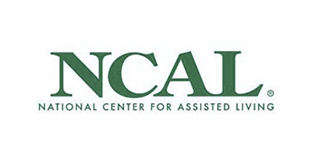NCAL Survey Shows Most Assisted Living Communities Face PPE Shortages
Patrick Connole
New data from a survey conducted by the National Center for Assisted Living (NCAL) of its members shows more than half of assisted living communities possess less than a two-week supply of specific personal protective equipment (PPE).
NCAL said while more than 70 percent of these assisted living communities have asked for help from state and local health agencies, many are still forced to reuse PPE or rely on homemade supplies.
“The lack of available PPE has also put long term care providers at a serious disadvantage in protecting residents and staff, especially given the vulnerable population in assisted living communities,” said Scott Tittle, executive director of NCAL, which is part of the American Health Care Association.
To date, assisted living communities have not received any direct federal funding, PPE shipments, or prioritization for testing (outside of some minimal state support), NCAL said. Like skilled nursing facilities, residents of assisted living communities are among those most vulnerable to COVID-19, as more than half are above the age of 85. Without adequate PPE, assisted living communities are facing an uphill battle in preventing COVID-19 outbreaks, NCAL said.
Since the beginning of the pandemic, Tittle emphasized that assisted living providers have faced similar challenges as other health care and congregate settings in acquiring this equipment, due to its high demand and world supply chain issues.
“As many states reinstitute public gatherings as well as plan guidance on ‘opening up’ long term care facilities to visitation, this is a critical time period to ensure our assisted living communities are equipped to keep COVID-19 out of their buildings,” he said.
“Our organization has requested $5 billion in emergency funding from the Department of Health & Human Services to help pay for PPE supplies as well as expanded testing and additional staffing. Without assistance from federal and state governments, our communities are at a significant disadvantage in protecting our residents and staff from this deadly virus.”
The survey, which was conducted by NCAL on 375 of its member communities from June 10-17, and showed 53 percent of assisted living communities in the survey had less than a two-week supply of N95 masks, 36 percent had less than a two-week supply of surgical masks, and 34 percent had less than a two-week supply of face masks. Fifty-two percent of respondents had less than a two-week supply of gowns.
Other key findings in the survey included that suppliers of PPE are requiring large minimum orders, which many small assisted living providers lack the purchasing power to do. Also, more than one-third of survey respondents said suppliers do not have any N95 masks, and there is a general lack of access to disinfectants and hand sanitizers.
